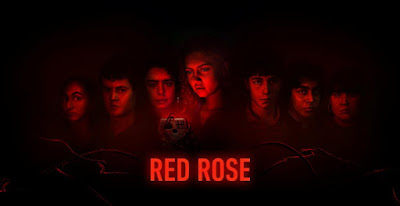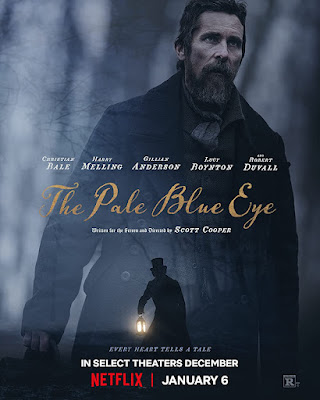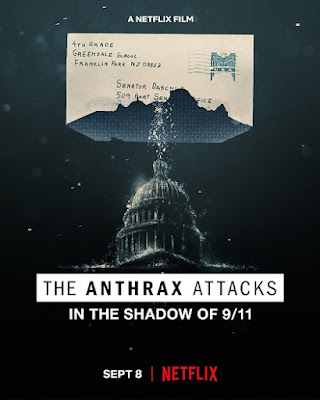It is a term rich with anime and folkloric significance. “Mononoke” are vengeful spirits, not unlike yokai. Miyazaki’s “Princess Mononoke” was not really a mononoke, but rather a human foundling who had a rapport with spirit creatures. The mononoke of the Mononoke anime and manga franchise are definitely mononoke. In fact, they are about as mononoke as they get. It is the “Medicine Seller’s” calling to exorcise them. Think of him as a medicine man, in that he holds shaman-like powers and peddles medicinal cures. He cuts an odd figure, but even the most secretive and powerful players in the Edo court will not turn him away when an enraged spirit terrorizes their Lord’s harem chambers in Kenji Nakamura & Kiyotaka Suzuki’s Mononoke the Movie: Chapter II—The Ashes of Rage, produced by Toei Animation, which premieres today on Netflix.
Thanks to the Medicine Seller, the Lord Tenshi’s concubines already survived one incredibly put-out mononoke in the previous film (which was a continuation from the 2007 anime series). Unfortunately, just when you thought it was safe to go back to harem’s super-restricted Ooku, another mononoke strikes. Obviously, the Medicine Seller needs to investigate, but his all-access pass is no longer valid, because it was issued by the former Ooku manager—now deceased.
Tensions were rising in the Ooku, even before the new mononoke peril emerged. The unseen Tenshi’s favorite, Fuki Tokita is showing signs of pregnancy, which should be a good thing, because an heir is needed. However, Tokita hails from “common stock,” even though we would probably consider her family middle to upper-middle class, from out contemporary perspective. Regardless, the prospect of debasing the Imperial lineage with common stock and allowing a less than pristinely noble family that kind of influence has the elite power-brokers alarmed.
Botan Otomo is perfectly placed to take action. She was selected to serve as the new Ooku manager because of her family’s power and prestige. As Tokita’s longtime rival, she openly resents Fuki’s inappropriately close relationship with Tenshi. However, she also feels loyalty to her Imperial lord and his prospective heir, whoever it might be. Instead, it is the angry mononoke of a wronged concubine who terrorizes the Ooku halls. Yet, before the Medicine Seller can dispel it, he must learn the reason for its grudge—much like Christian exorcists need a demon’s name to take dominion over it.
Without question, Nakamura’s Mononoke films represent an energizing respite from overly slick (and consequently soulless) 3D computer generated animation. While digital techniques were employed, the Mononoke features have an eye-popping, mind-blowing baroque style that resemble a fusion of Edo-era ukiyo-e woodcuts with Peter Max headshop posters. Each frame is an absolute explosion of color. Frankly, it is a good thing Ashes of Rage is a relative shorty, because extended exposure to the utterly distinctive animation could induce sensory overload. Yet, it is always wildly cool to behold.




















